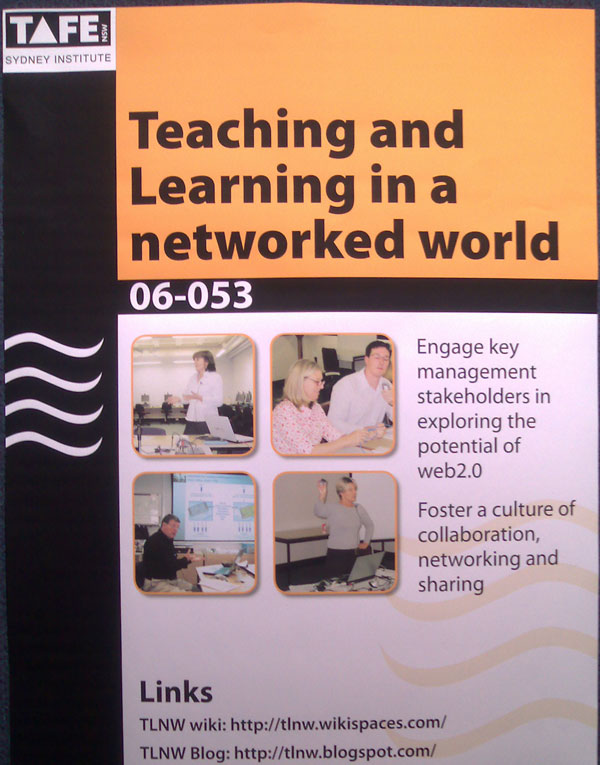Reading Jon Husband’s post about the Rebel Sell (which I hadn’t heard of before) – it struck me that there might be some similarities between the ‘countercultural consumers’ in Heath and Potter’s analysis, and those advocates of the ‘network way’ who would sweep away the institutional structures that frame (or contain / constrain ?) learning. In the Rebel Sell perspective:
“Potter and Heath look to many counter-cultural perspectives such as ecological activists, culture-jammers, thugs, skateboarders, and anti-consumerists and draw similarities between all of them. They all perceive the rest of the world (the mainstream), as oppressed or brainwashed into conforming by a larger social force, and society’s rules (formal and otherwise) are thought to be suppressive of human nature for this reason. These parallels lead Potter and Heath to conclude that counter-cultural movements are not as unique as they appear.”
Yes, and the counter-teaching movement is also not as unique as it appears. I remember reading Postman and Weingartner’s Teaching as a Subversive Activity as a student teacher in 1982 and getting all fired up (and then getting disillusioned when they later wrote Teaching as a Conserving Activity – but then later realising Bateson was right and learning, like evolution, is stochastic, and combines the random with the purposeful, imagination with rigour.)
As I argued at eFest – the real change needs to happens in our mental models, not in the visible structures of the hierarchy. The educational system is not simply going to disappear because of a new technology. It will be disrupted and transformed, but not subsumed by some meta-network that grants certification on reputation alone.
Or as Dave Snowden aptly put it: “One of the great challenges is going to be to allow a co-evolution of the capability of 2.0 tools with the needs to organisations. Those organisations are going to be managed, will need to make revenue and sell solutions and products. Governments have to handle significantly higher demands on resources, while those resources are themselves reducing. All of this requires transformation, but it will also require management.” And making a similar point in a different way “We need to think about the interface between social computing and traditional world of publishing and validation.” And we need to think about the ways in which elearning 2.0 can creatively disrupt the ‘real university’ but keep baby and bathwater together.

